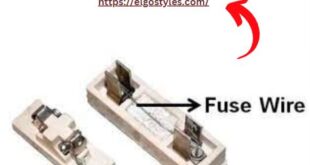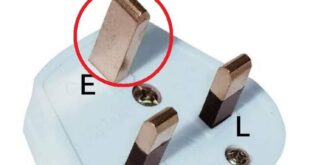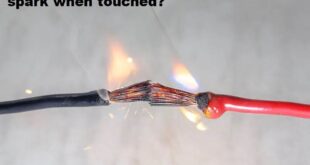Answer: Pure water does not conduct electricity because it lacks ions necessary for the flow of electrical current. To make it conducting, we can add impurities or electrolytes like salt. Reasoning: Pure water, consisting only of H2O molecules, lacks ions necessary for the conduction of electricity. In its purest form, …
Read More »Tag Archives: conductivity
Why is the Grounding Wire Bare and Not Insulated?
Answer: The grounding wire is bare and not insulated to ensure effective dissipation of electrical charges into the ground, preventing electrical hazards. Reasoning: The grounding wire serves as a safety measure in electrical systems. It’s designed to provide a path of least resistance for electrical current to flow into the …
Read More »Why Do Electrical Prongs Have Holes in Them?
Answer: Electrical prongs have holes in them to enhance safety by allowing the prongs to securely grip the outlet’s contacts and create a stable electrical connection. Reasoning: The holes in electrical prongs serve multiple purposes. Firstly, they allow for the insertion of small metal tabs within the outlet’s sockets. These …
Read More »Which material is generally used in a fuse wire?
Answer: The material generally used in a fuse wire is an alloy of tin and lead. Reasoning: Low Melting Point: Tin-lead alloy has a low melting point, ensuring it melts easily under excessive current. Good Conductivity: The alloy maintains good electrical conductivity, ensuring efficient current flow. Safety: It’s chosen for …
Read More »Why is the earth pin thicker and longer than the live and the neutral pins?
Answer: The earth pin is thicker and longer than the live and neutral pins in electrical plugs for safety reasons. The primary purpose of the earth pin is to provide a reliable path for electrical fault currents to be safely directed to the ground. The larger size of the earth …
Read More »Why do the positive and negative wires spark when touched?
Answer: The sparking that occurs when positive and negative wires are touched is primarily due to the flow of electrical current between them. When the two wires come into contact, electrons move from the negatively charged wire to the positively charged wire, creating a spark in the process. Reasoning: Electron …
Read More » Electrical Engineering World Wiring a Brighter Tomorrow!
Electrical Engineering World Wiring a Brighter Tomorrow!




